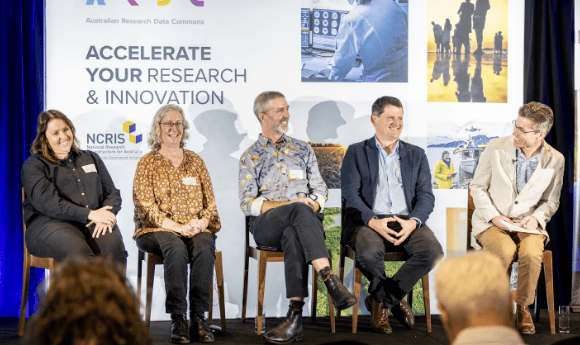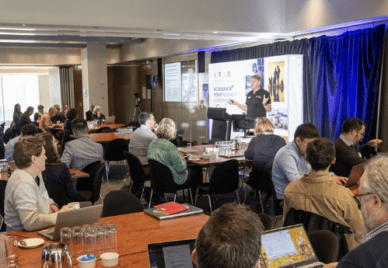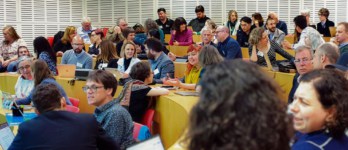
The Australian Research Data Commons (ARDC) recently held its second leadership forum for 2024 on The Skilled Research Infrastructure Workforce: Pathways and Support to Enable Effective Research. The forum brought together key stakeholders in the research sector to discuss pathways and support that help address digital skills gaps to enable effective research. The forum was held in Naarm at the University of Melbourne on 21 May 2024. Over 55 people attended in person and over 90 participated online.
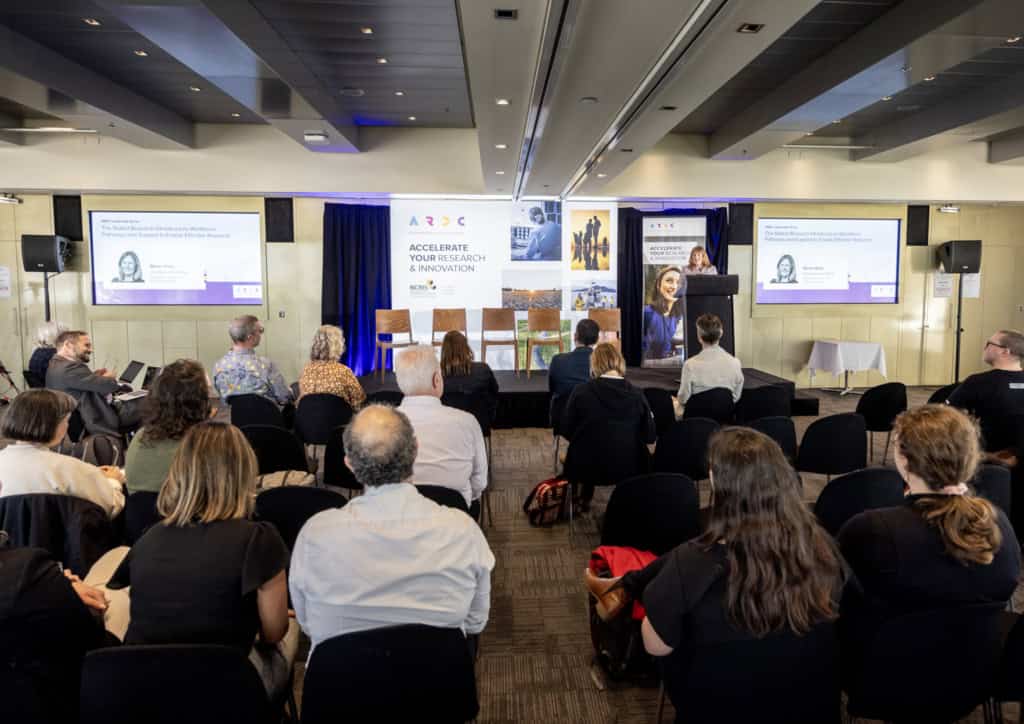
Rosie Hicks, CEO, ARDC said in her introduction, “These events allow us to bring people together to discuss the importance of the highly skilled research infrastructure workforce and recognise the role it plays in enabling world class research.
“Recently, the Minister for Education, Jason Clare, was quoted as saying, ‘As a country we do 3% of the global research. 3% from a country that accounts for only 0.3% of the world’s population. We punch well above our weight in research and innovation.’
“But how does Australia punch above its weight? A good part of Australia thrives because of the often under-recognised contribution made by the digital research infrastructure workforce.”
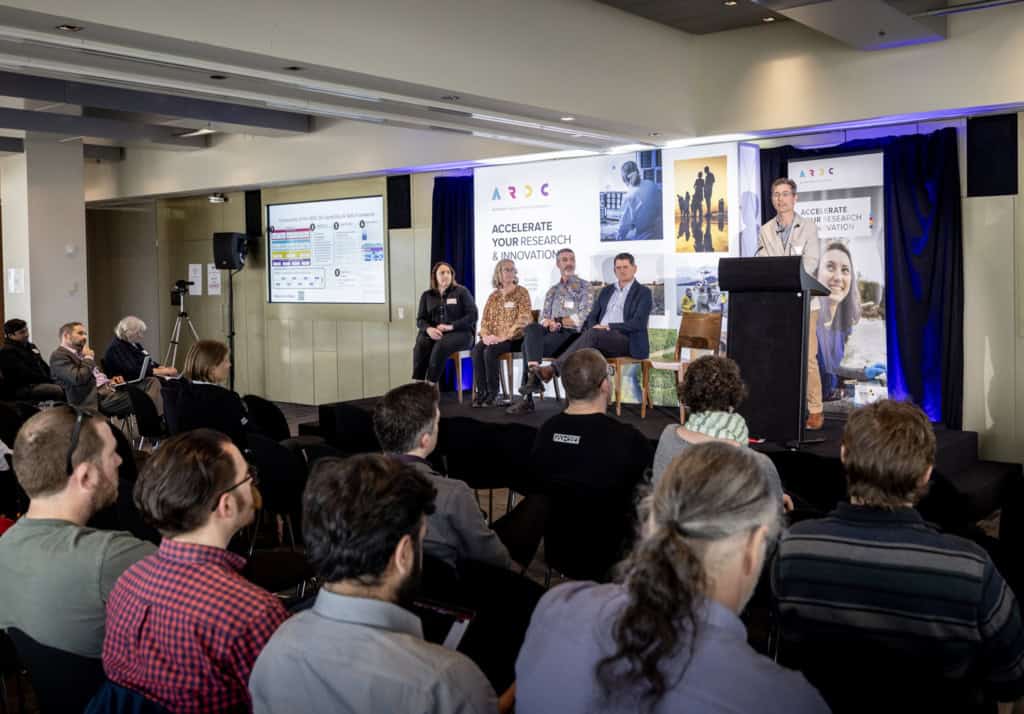
Associate Professor Nic Geard, Director, Melbourne Data Analytics Platform (MDAP), University of Melbourne, facilitated the forum. In his introduction, he said, “It’s clear that an increasing amount of research today, whether it be in academia or in industry, and across all of the different disciplines within academia, is collaborative, it’s multidisciplinary, it’s digital and it makes use of huge quantities of data. And that can be all the way from cultural collections and archives through to the vast datasets that are generated by modern methods in genomics and in astronomy and earth sciences. So in order to maximise and make the most of these new and emerging datasets, we really do need a skilled workforce who are able to support researchers in their aims.”
Both Mrs Hicks and A/Prof Geard noted that the importance of digital research skills is widely acknowledged, with the first item on the Department of Education’s draft National Digital Research Infrastructure (NDRI) Strategy is “Underpinned by training frameworks for researchers and NRI workforce.” It notes that the challenge is that Australia’s NDRI cannot reach its true potential for impact without access to a suitably skilled workforce by digitally skilled researchers and other users.
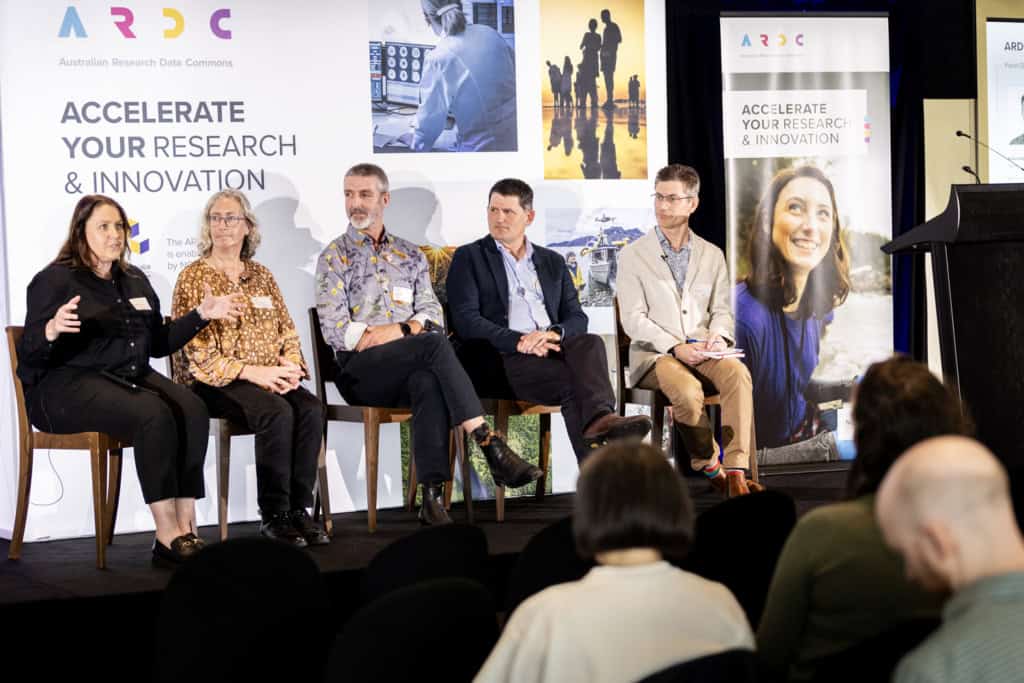
Professor David Powell, Monash University and A/Professor Nic Geard, University of Melbourne, discuss digital research skills at the ARDC Leadership Forum
Following the introductions, we heard from the expert panel:
- Professor Helen Thompson, Centre for eResearch and Digital Innovation (CeRDI), Federation University
- Professor David Powell, Director, eResearch Centre, Monash University
- Dr Tim Rawling, CEO, Auscope
- Julie Rothacker, Director, Major External Projects (Government), Australian Catholic University.
Through panel discussions and a lively Q&A session, the panel highlighted:
- the importance of instilling a basic understanding of technology and data systems, along with adaptability
- the need for effective communication skills to be able to translate the needs of researchers from various disciplines
- the value in building research infrastructure in partnership with other sectors, including government and industry
- the challenges of retaining research infrastructure staff in smaller organisations
- the importance of sharing impact stories and recognising the sense of purpose that comes from the research infrastructure roles
- the importance of sharing best practices and experiences, for example through work experience exchanges to build connected and skilled user communities in research infrastructure.
A recording of the forum is now available along with the slides for the introduction by Rosie Hicks, CEO, ARDC.
The Leadership Forum was the first part of the ARDC’s annual Digital Skills Summit, which was held on 22 and 23 May. Stay tuned for the recordings and summaries from the summit.
Here is a selection of photos from the Leadership Forum. Images: David Hannah / ARDC













Join the ARDC at one of our upcoming events.
The ARDC is enabled by the National Collaborative Research Infrastructure Strategy (NCRIS) to support national digital research infrastructure for Australian researchers.
Author
Reviewed by
Categories
Research Topic
Related Program
Related Projects
Related News & Events
- ARDC Skills: Leading the National Digital Research Skills Agenda
- Data and Platforms: Meeting Australia’s Future Research Needs
- Experts Explore Trusted Environments for Health and Medical Research
- Experts Discuss Sharing Sensitive and Identifiable Human Data
- Enhancing Environmental Decision Making with Trusted Data
- Powering Research Through Skills: Highlights from the ARDC Digital Research Skills Summit 2024
Related Case Studies


